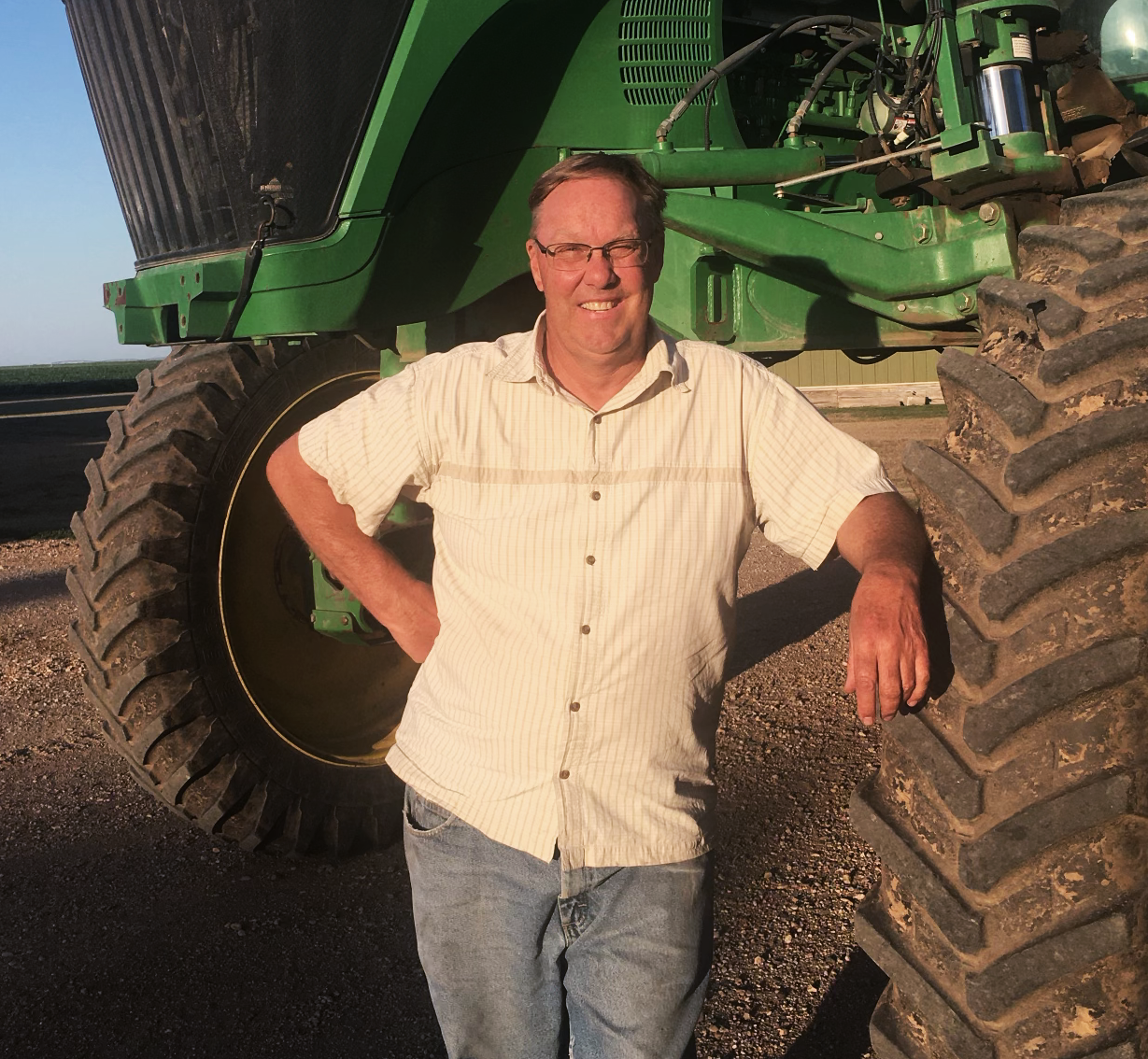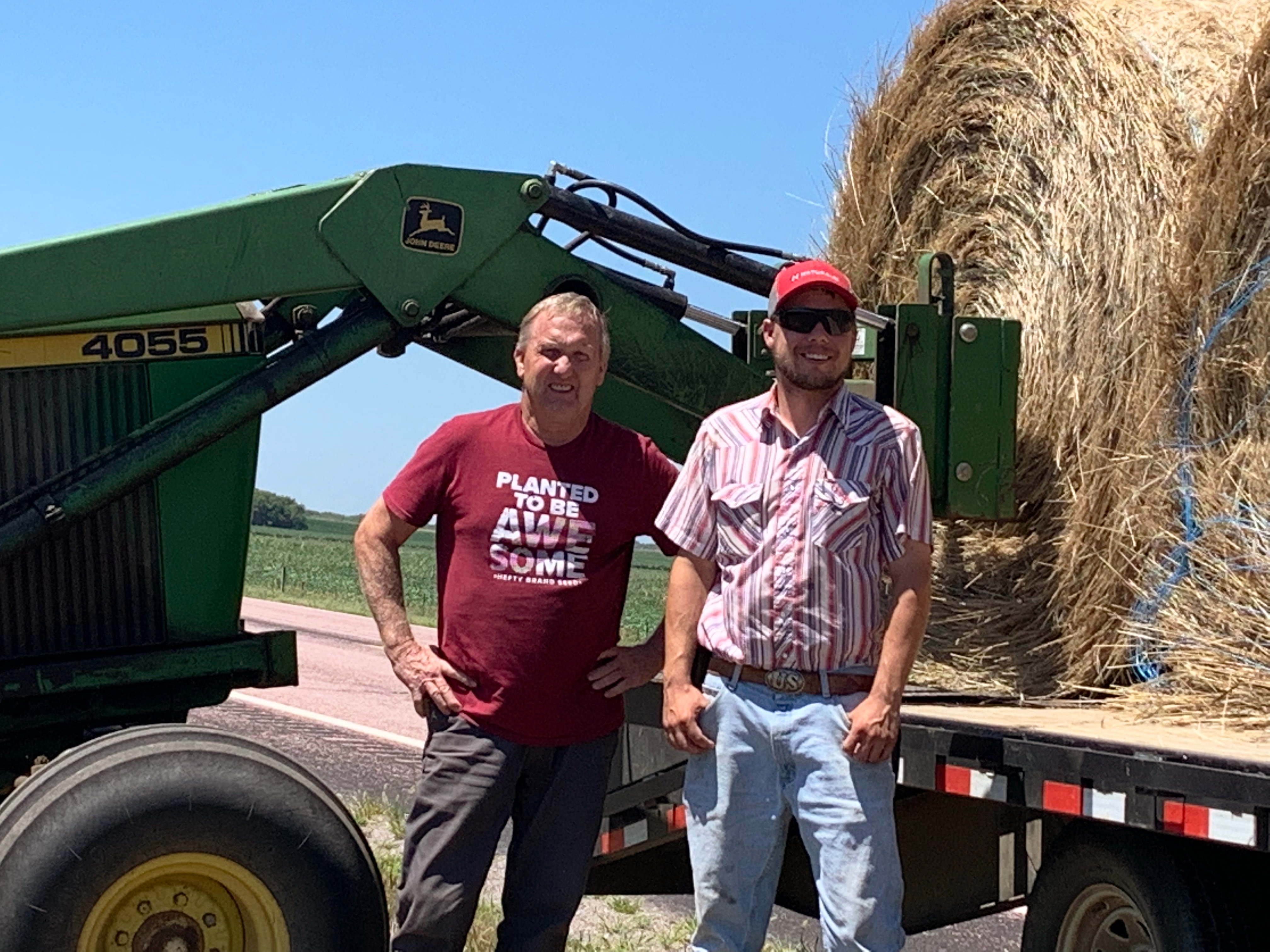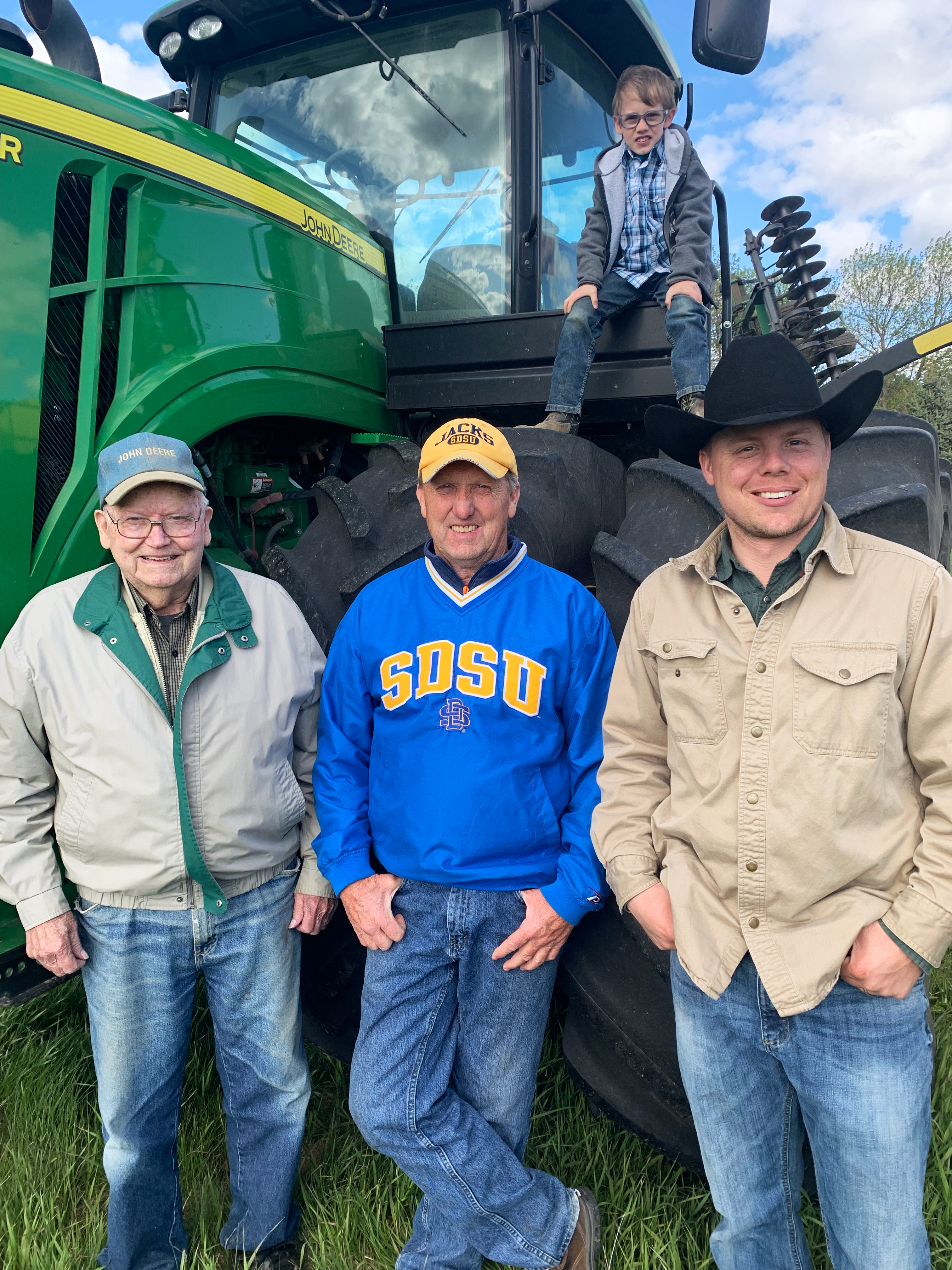

David Ostrem’s family has worked their homesteads just outside of Centerville, South Dakota for generations – and both sides of his family hold strong, far-reaching roots that stretch across the years. Back in the late 1800s, his great-grandparents on both sides of the family immigrated from Norway and founded farms just two miles away from each other just west of town. Today, the Ostrems farm it all. David, 64, along with his older brother, Tim, 65, and his son, Greg, 33, work together on the 2800-acre farm, raising a 50/50 rotation of corn and soybeans.
“My great-grandfathers homesteaded here and we all farmed,” David said. “My son is farming, so that’s five generations. We’ll see if my grandson farms, too, but right now we’re on the fifth generation of Ostrems farming here in the Centerville area.”

For David, there was never any doubt as to what he wanted his life to be; in his mind, farming was what he was born to do.
“It’s just a desire I’ve always had, a passion,” he said. “I really believe that it’s just kind of innate in a person. You just have that interest. You come home from school and want to find your dad and join him in doing whatever he’s doing.”
That desire to live off the land is closely tied to the gratitude for being the steward of his family’s legacy – and the peaceful solitude it brings him. David loves the outdoors and being away from the hustle and bustle of what he imagines town living to be. For him, there is nothing that comes close to having the privacy afforded to him on his farm, away from the bright lights that blot out his natural view of the heavens.
“I don’t know what it’s like to live in the city, but I know what it’s like to live on the farm,” David said. “I don’t know how to describe it. You’ve got space between you and your neighbor. And you just get this feeling when looking up at night and seeing all the stars in the sky. You just feel like you’re by yourself out there, and I like that.”
Although the future is not set, David recognizes that same familiar interest in farming he felt in his younger self beginning to sprout in his 10-year-old grandson, Creed.
“Some kids, when they come home, they would rather go in the house or shoot the basketball, which is all fine,” David said. “I was more like, ‘Where’s Dad? What’s he doing today?’ My son was the same way, and my grandson is the same way. He’s beside you all the time wanting to run the tractor and wanting to learn. He might change his mind when he’s older, but it’s just the way he is.”

No matter the future of the farm, it’s sure to be a family affair. David credits a lot of the current success of the farm to his father, Boyd, who passed away earlier this spring and would have been 92 this summer. An avid outdoorsman, when David and his brother, Tim, were younger, Boyd would take any chance he could to drop everything and go fishing, leaving behind a task list for his sons.
“My dad used to always joke that he was not ambitious enough, but he would make a list for us to do when he was fishing,” David said. “When he got home, it would all be done. He’d always say he struggled to find more for us to do, but we’d always get it done. Maybe that’s what makes a good farm manager. I never thought he was lazy, but he’d joke that he was.”
David and Tim are basically the same age – about a year apart – so while growing up, they’d fight like brothers do, but when it came to the farm, they always ended up working everything out well, using the strengths of each to complement the other to accomplish the farm’s goals. That isn’t to say some friendly competition didn’t help push things along at times.
“When you’re less than a year apart, you’re always competitive with each other, even if it’s something as simple as having the same number of pepperonis on our pizza slices or who could get their bikes up the hill faster,” David said. “But at the same time, we have each other’s backs. If something breaks down, we can call each other and get help. You have your competitive nature that brothers have, but now we just help each other out.”
Another person who probably understands all too well how David feels when it comes to having to work with a brother is Darren Hefty. Back in 1993, the Hefty Seed Company began expanding its geographical footprint by opening locations beyond the founding location in Baltic, South Dakota. Centerville was the first of these stores to open, and Darren was part of the agronomy staff there at launch. The Ostrems started getting their ag supplies from this new location immediately, working with Darren on strategies to provide the most return on investment for their farm.
“When you have a local business in your community, you want to support it as much as possible,” David said. “We don’t hire a lot of custom-applied work, and Hefty’s is geared to help people like that. We like to do a lot of things ourselves, and they were very competitive on their prices as far as inputs, so it just worked into our system really well.”
None of us want to see tens of millions of acres of soybean leaves cupped up again this summer. If we do, it’s just that much sooner until dicamba is banned. While you think that might be the end of it, it won’t be. Keep in mind there are some loud voices in our country trying to stop us from farming the way we do today. While few in number, these people create political and legal challenges for us each and every day. Once dicamba is banned, and I have no doubt it will be if things continue like they have the last few years, they will come after something else. Even if all ag chemicals (many of which are very, very safe to our environment and human beings) are gone, they’ll try to get us to change something else.
What I’m saying is in my opinion we don’t need any more government regulation. If we want less (or at least no more) government intervention, we have to use our products and our resources more carefully. My advice is to stop spraying dicamba extra early. Pick one of the alternatives I’ve listed above or use something else. Even if you follow the label perfectly with any dicamba product, it can still pick up and move later on. You won’t give it the chance if you don’t spray it. Please use a non-dicamba herbicide if at all possible as we get later in the season.

